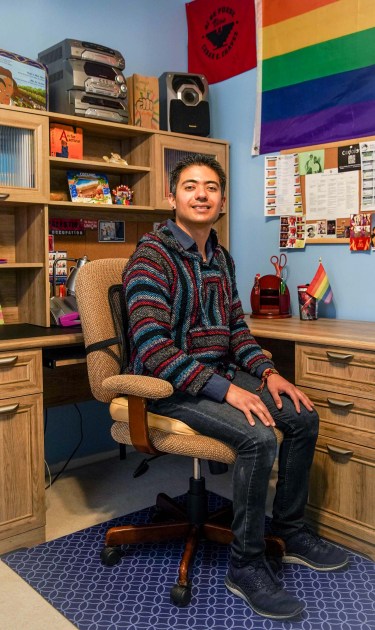The relationship between the LGBTQ community and religion has long been fraught. Despite teaching about love and acceptance, churches have shamed and made queer folks feel unwelcomed. But this doesn’t mean that the queer community has turned its back on the church – at least not entirely. For example, both GLAAD and The Trevor Project – two national organizations that cater to the LGBTQ community – dedicate space to the topic on their sites.
While it’s true that lesbians, gays, and bisexuals are less likely to consider themselves Christian than the rest of the population, they are also more drawn to smaller, non-Christian denominations. According to a 2014 Pew Research study, only 6% of the general public is affiliated with a non-Christian faith, while the same is true for 11% of gay, lesbian, and bisexual adults.
When it comes to the Latinx community, there’s still a majority (55%) who consider themselves Catholic. The numbers are shifting, with more and more identifying as either Protestant or “religiously unaffiliated,” according to Pew Research Center.
Somewhere among these numbers, we have queer Latinxs who may be drawn to religion because of their culture, but pushed away because of the church’s lack of acceptance. This push and pull is particularly important to our communities because Latino millennials are less likely to identify as straight. A 2018 GenForward survey found that 14% of all millennials identified as LGBTQ, and that at 22%, Latinx millennials were more likely than other ethnicities to self-identify as queer.
Given the importance of religion and sexual identity in our lives, we spoke to Latinxs in one of the country’s most Latinx states about these sometimes conflicting identities. Below, learn about three queer Tejanos’ relationship with religion.
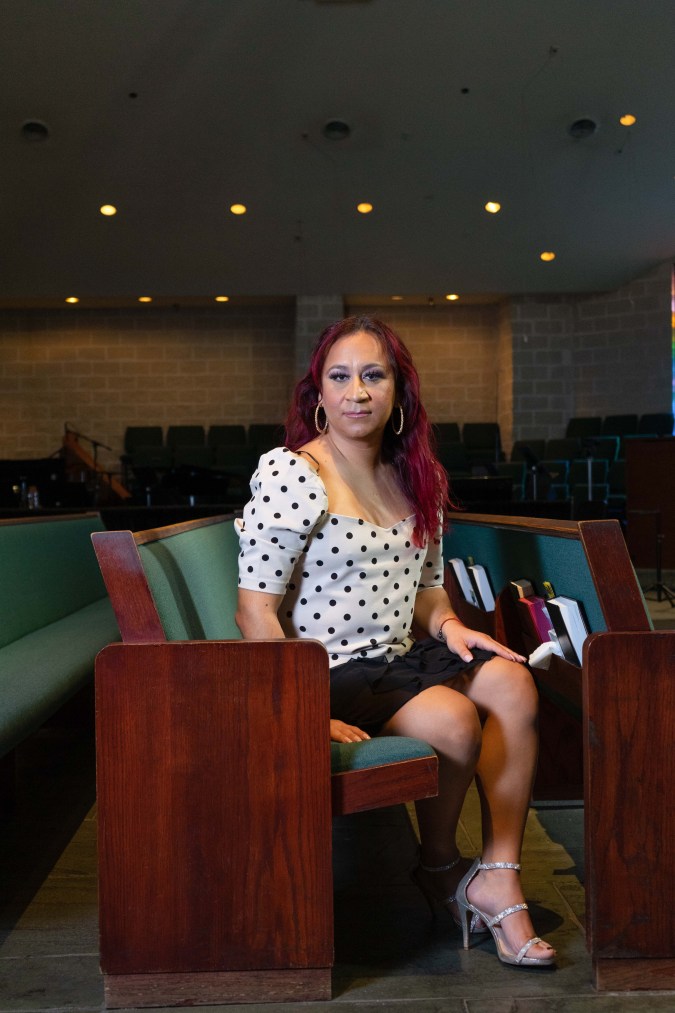
Paloma Ibarra
For Paloma Ibarra, there had to be more to church than the disapproving stares that disrupted Sunday service.
Instead of feeling at peace during an important spiritual moment, she felt judged. Other churchgoers called her a “condemned person” and a “sinner,” but she couldn’t understand why. She tried praying away her trans identity, but God didn’t answer. “Like they say, ‘When God doesn’t answer your prayer, it’s for a reason,’” she says.
Knowing that she hadn’t done anything bad, she wondered, “Why wouldn’t God love me?”.
For six years, the pastor’s daughter stayed away from church, instead opting to continue her relationship with God outside of the walls of a traditional place of worship. But eventually, she yearned to return, so she typed “iglesia gay cristiana” into a search bar. The first one that popped up was Catedral de la Esperanza. An article said the church welcomed all.
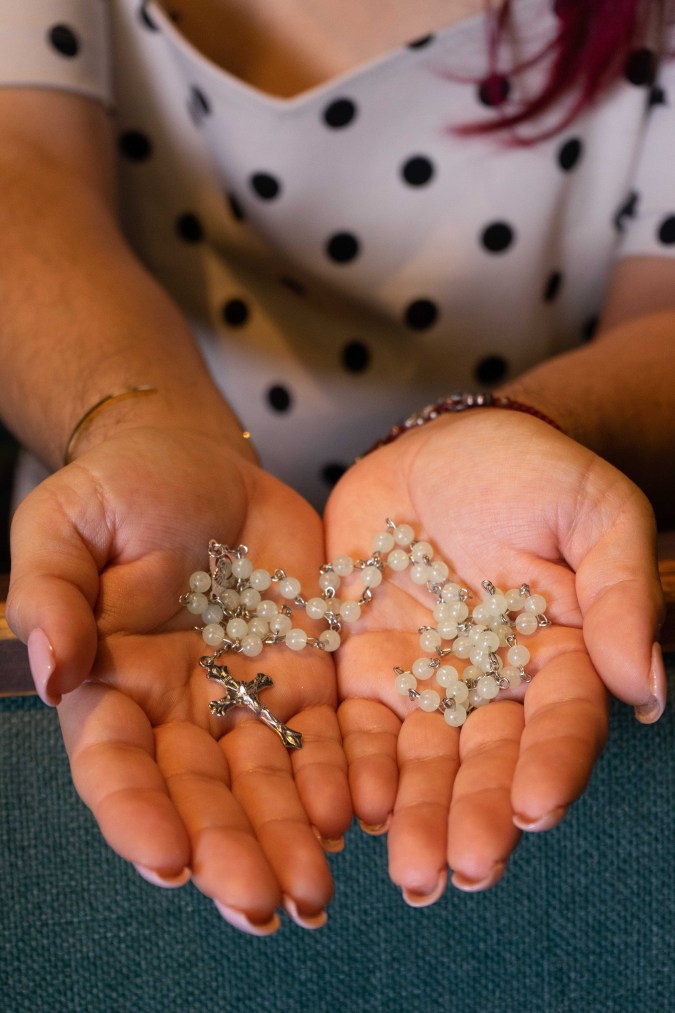
“The first time I went I didn’t know what to anticipate, what to expect from the church, so I simply went with an open heart,” Ibarra said. “I went looking for God.”
That first day she felt out of place. Most of the people that walked in were couples. She was alone, with no support.
But as she walked through the pews, there were no disapproving stares. The people she met were kind, and her pastor treated her with the respect she’d yearned for at her old church.
“I felt spiritually full with an inner peace that touched me when I was there,” Ibarra said.
Five years later, Ibarra still feels she has a place at the church. As a matter of fact, it’s where she’s met some of her best friends, people who, like her, want to strengthen their relationship with God.
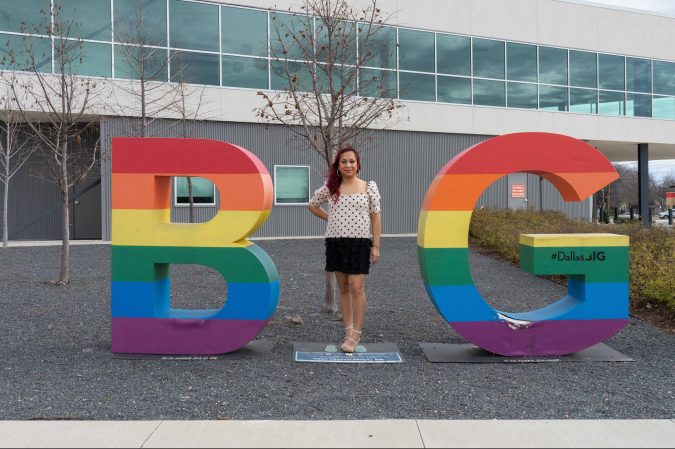
“We know we’re looking for the same thing, looking for God,” she said. “But also someone we can trust and talk to independently of being from the LGBT community.”
Scrolling through Ibarra’s social media you’ll find YouTube links to sermons and bible quotes – as well as photos of Ibarra with her friends decked out in their Sunday best, hashtagged with phrases like #churchflow and #inclusive.
While not everyone is as lucky as Ibarra to find this community, she hopes her constant posts lets other members of the trans community know that these spaces exist.
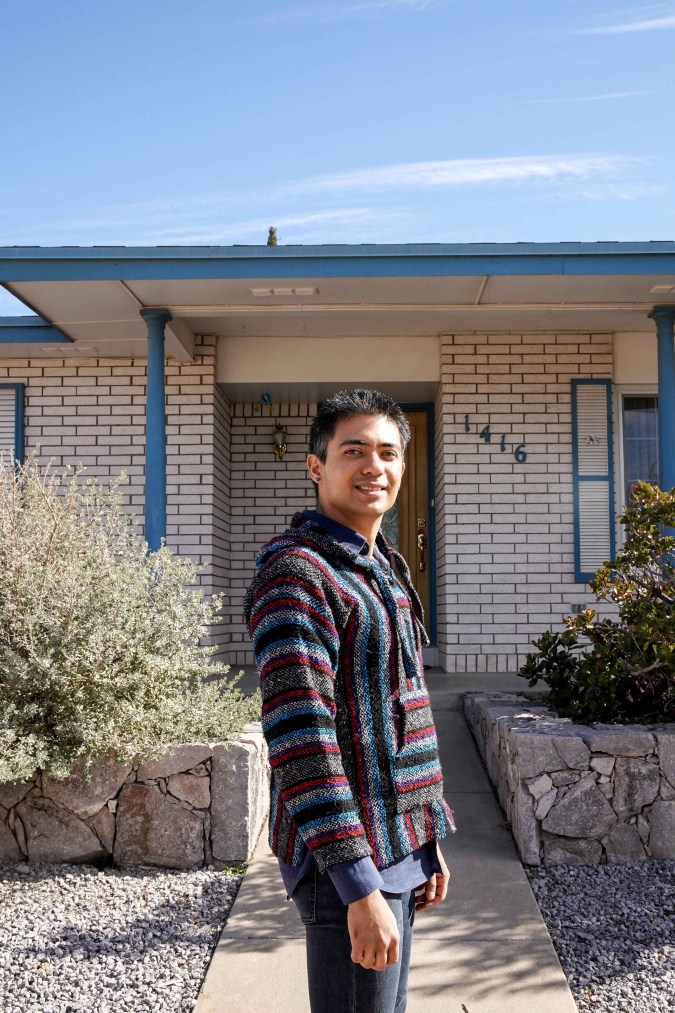
Alonzo Mendoza
Alonzo Mendoza is bi, Latinx, and Catholic, and he refuses to compartmentalize. He can’t separate these identities from each other because they make him whole.
In El Paso, one of the most Latinx cities in Texas, Mendoza didn’t give much thought to his Latinidad. Yeah he’s Mexican, but so were most of the people around him. It wasn’t until moving to study at The University of Texas at Austin that he left the Latinx bubble. He felt the thorny pricks of microaggressions and the slash of overt racism, like when the young conservatives of Texas set up a “catch an illegal immigrant” game. Mendoza, along with more than 300 other students, protested the event which was eventually shut down.
Yet the visibility of Austin’s LGBTQIA+ community, and becoming part of it, is what made him feel comfortable enough to come out.
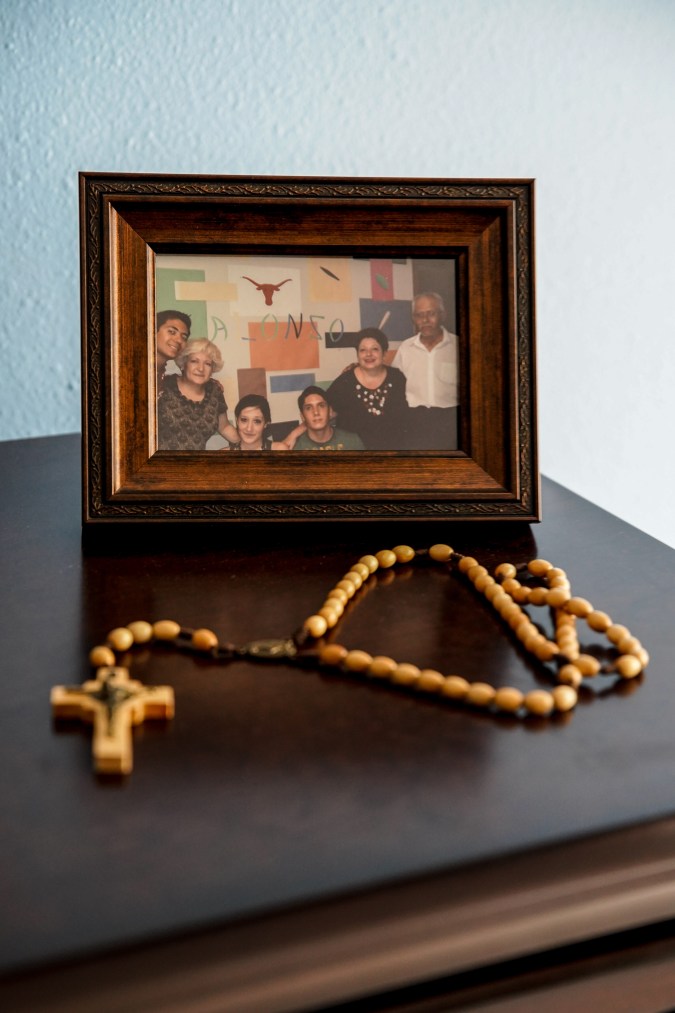
And no matter where he was — back home in El Paso, studying abroad in Spain, or completing his undergrad at UT-Austin — Mendoza went to church regularly.
“I understand why a lot of people decide to move away from the church. The church has a history of homophobia and leaders that haven’t been accepting,” he said.
But if LGBTQ people stay involved in the church, it could show others, like them, that there is space for them in religion. Though Mendoza said it’s easy to find conflict between Christianity and his sexuality, religion is what has bound his lived experiences. Through liberation theology — a sect of christianity that fights for economic justice and human rights — he uses his identity as part of his activism.
He openly shares who he is in the hopes that other people from marginalized communities will see that there’s no need to compartmentalize. Their perspective and who they are — every bit that makes them — is needed to push change forth.
“Things aren’t going to change if we leave. If the entire LGBTQ community leaves the church there will never be a bridge between those two communities,” he says.
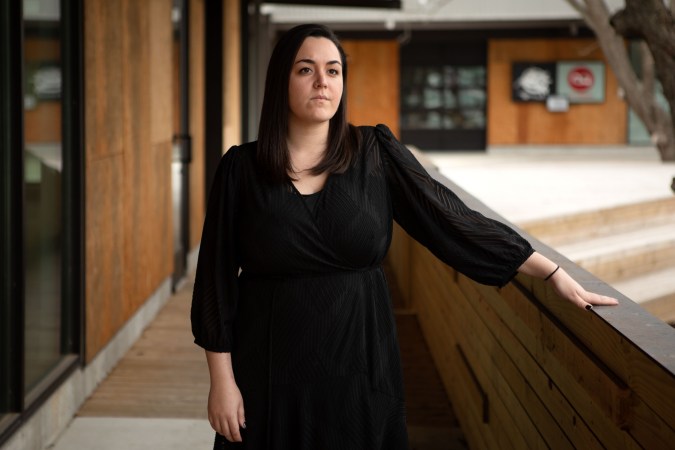
Claudia Yoli Ferla
As a kid, Claudia Yoli Ferla got the full Catholic kid experience. School had nuns and Sundays (all of them) were reserved for attending church at Iglesia San Judas Tadeo alongside her mom.
“Which is funny because he’s the saint of the impossible cases,” said Yoli Ferla about the saint her childhood church is named after. Yoli Ferla is co-executive director of Deeds Not Words, an organization focused on gender equity.
Despite the taboos of the church, Yoli Ferla’s mom had been divorced. She still took her communion at mass and said her prayers, but she didn’t go to confession.
“I’m not going to go and confess my sins to another sinner,” she’d say.
Despite the weekly church visits of her youth, Yoli Ferla’s mother taught her that the relationship with God was a personal one. Yoli Ferla decided to step back from the church for a while after seeing religion used in a way that went against the church’s teachings. She continued to nurture her relationship with God, but outside of the structures of Christianity.
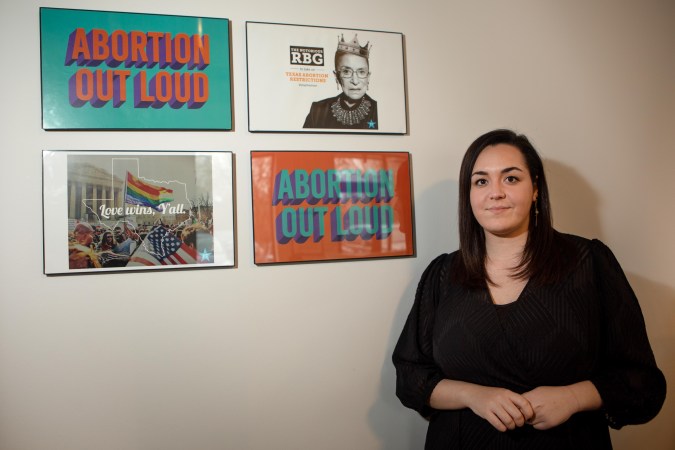
Within organized religion, her identities are at odds. Yoli Ferla, undocumented, is also queer. She’s seen that some churches do operate, like her, through a social justice lens. Her hometown church in El Paso rallied around immigrant rights since so much of the congregation were immigrants. But the church’s spirit of activism only goes so far.
She pointed to the legislature as an example of the “role religion can play in politics,” saying “politicians use religion as a scapegoat to normalizing discrimination” and to prevent certain communities from being able to “access their rights.” She listed the LGBTQ+, immigrants, and those who need reproductive health access as affected communities.
“It’s annoying and frustrating to have religion used against you. To have lies turned into laws.”
But her mom taught her certain rights transcend religion, identities, and socioeconomic status. She is still figuring out a balance that feels right — going to church every week and having her usual one-on-one’s with God — and hopefully showing other people who see themselves in her that religion can be part of their lives in whatever way they choose.
Credits
Written by Stacy Fernández
Photographed by Miguel Gutierrez, Itzel Alejandra Martinez, & Raul Rodriguez
Edited by Erika Ramirez
Produced by Itzel Alejandra Martinez
